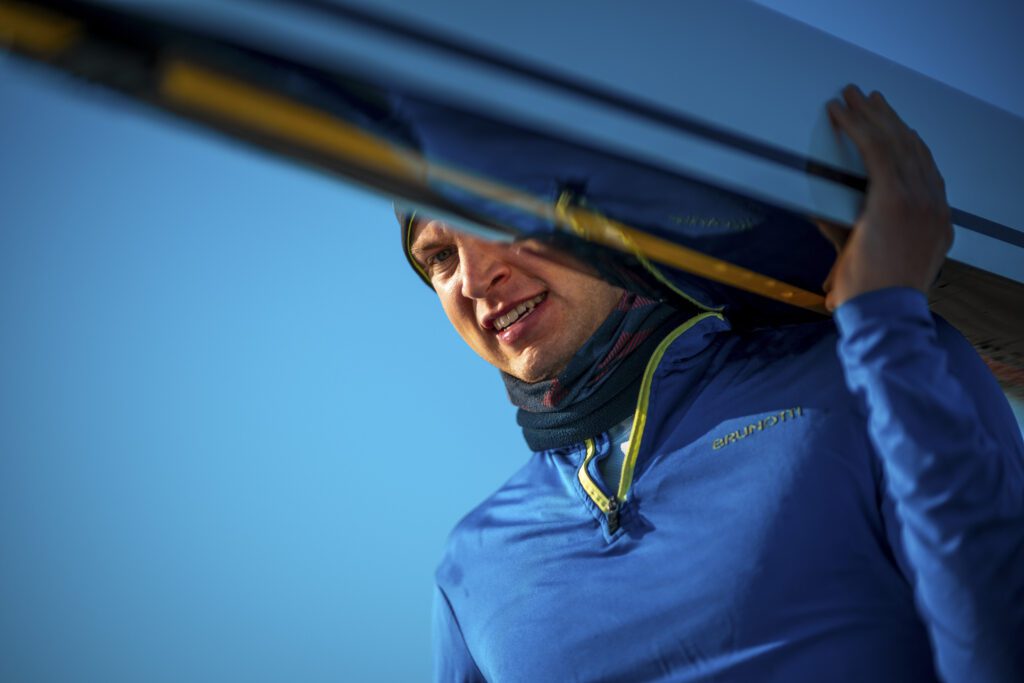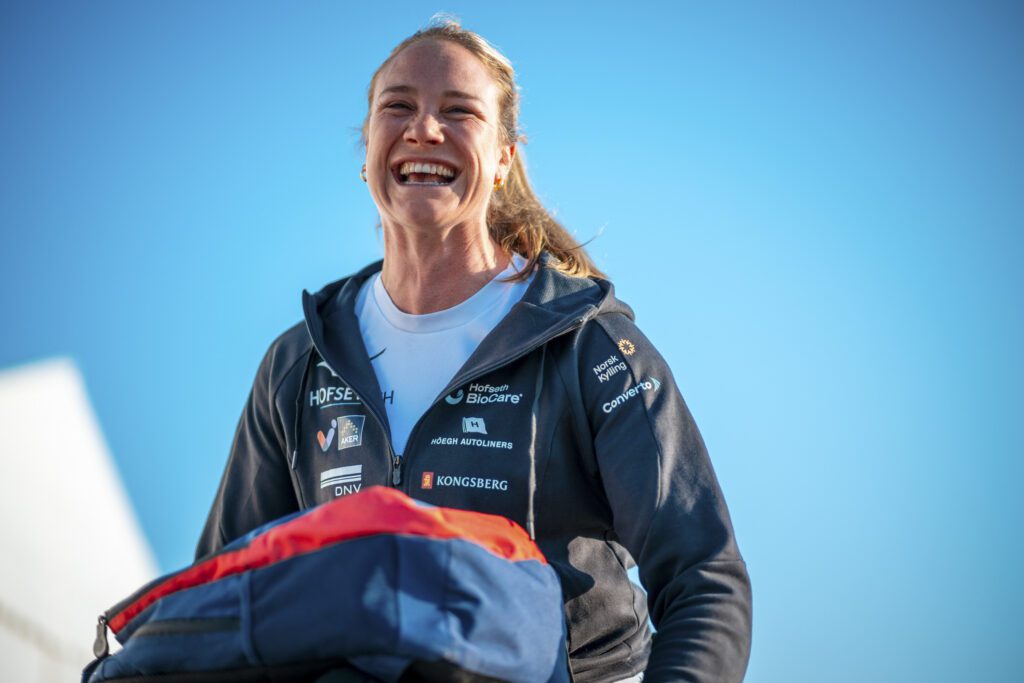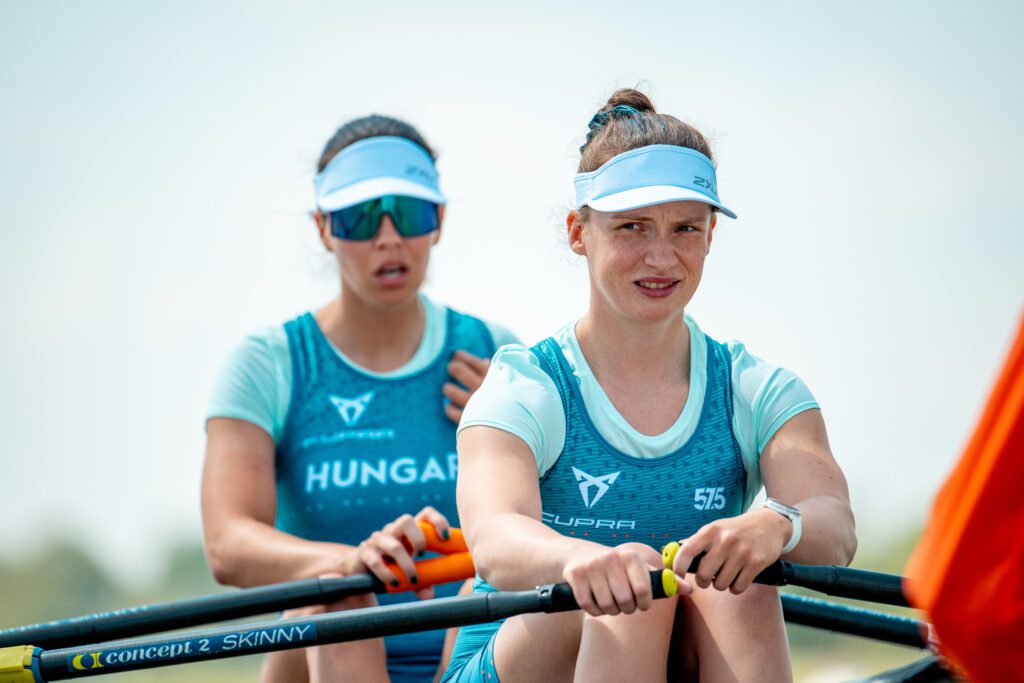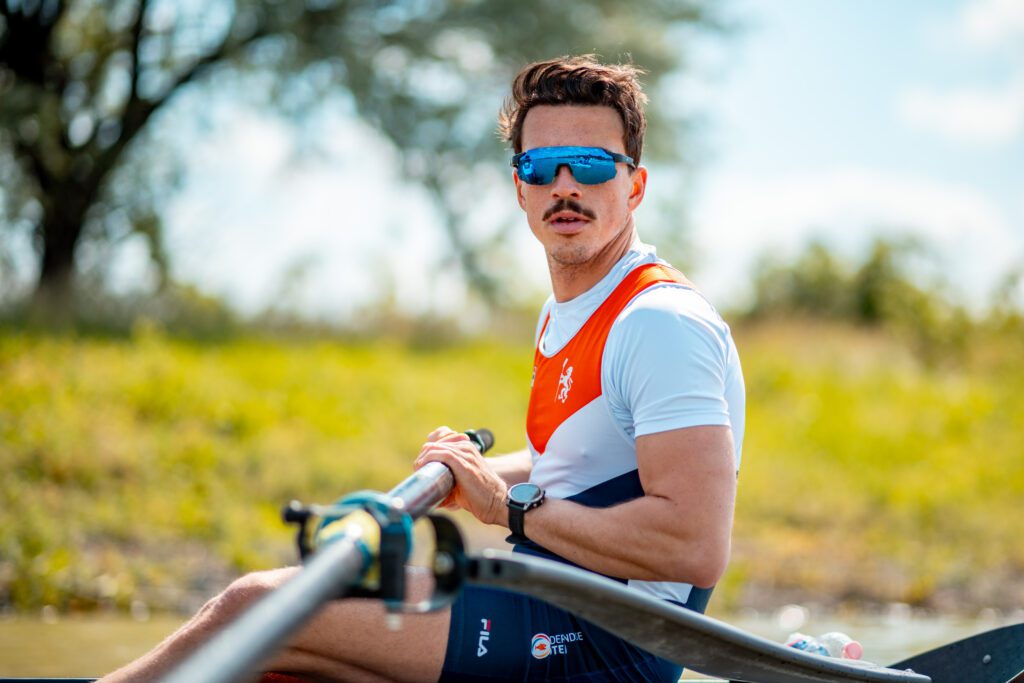Thursday morning, 24 hours to go, and the sparkling Sea Forest Waterway was fizzing with suppressed excitement. At nine in the morning the course was speckled with crews doing long tapering outings, paddling loop after loop with the odd burst to test out their top speeds. A few starts. A few finish sprints. Lots of lovely rowing to watch. It’s slightly different when we don’t know the form of many crews: each unit coming down the track looks like a dark horse. Even for those who have raced already in Europe, the unknown is how they will do against the absentees — particularly Australia, New Zealand, China, USA and Canada — the uncertainty works both ways. The heats, spread over the first three days, will tell us a lot.
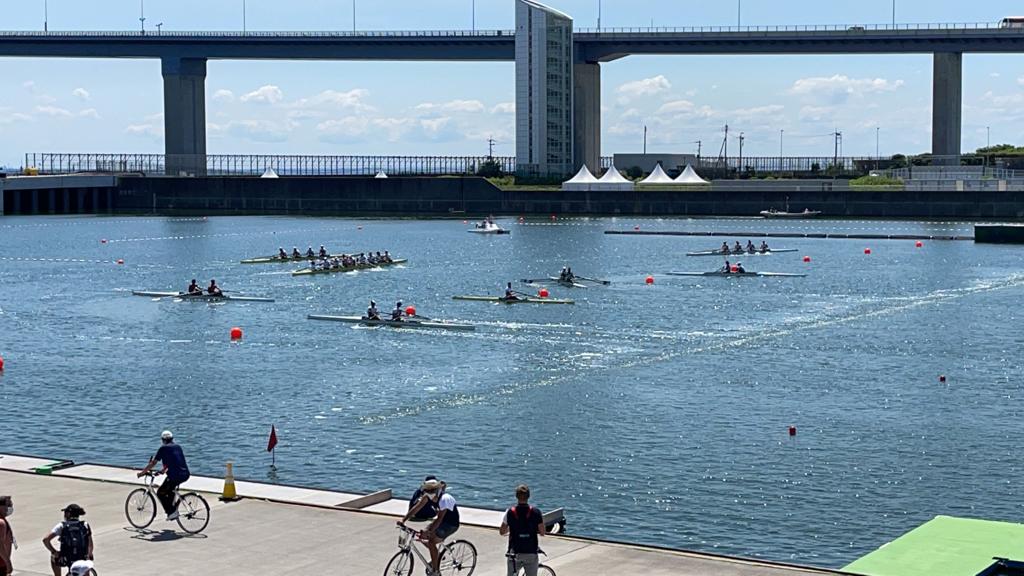
Photo Crews training on the course in Tokyo on thursday
Credit Rachel Quarrell
Later in the morning the spares races helped the officials and commentators by testing the time-trial format before then racing again an hour later, side-by-side. The time-trials were suitably dull but the side-by-side contests, though with the exception of one women’s singles race not exactly nailbiters, did light up the lake with purposeful intent and yielded wins for GBR (W2-/x and M2-), Netherlands1 (W1xa), Italy (W1xb), Romania (M1xa) and Germany (M1xb). As they were finishing post-noon the wind blew up to a stronger cross-tailwind, slightly from the far side opposite the grandstands, though the water conditions didn’t look too bad. The forecast is for slightly stronger wind on Friday, but the worst weather is so fare predicted for the finals days, though both high wind and thunderstorms are more likely to take place in the afternoons after racing has finished. FISA have their usual top-notch wind prediction service operating and ran the Asian Qualification Regatta here with it in May, so are confident they understand the likely patterns, helped by weather-logging buoys installed in 2019 when the Sea Forest course opened.
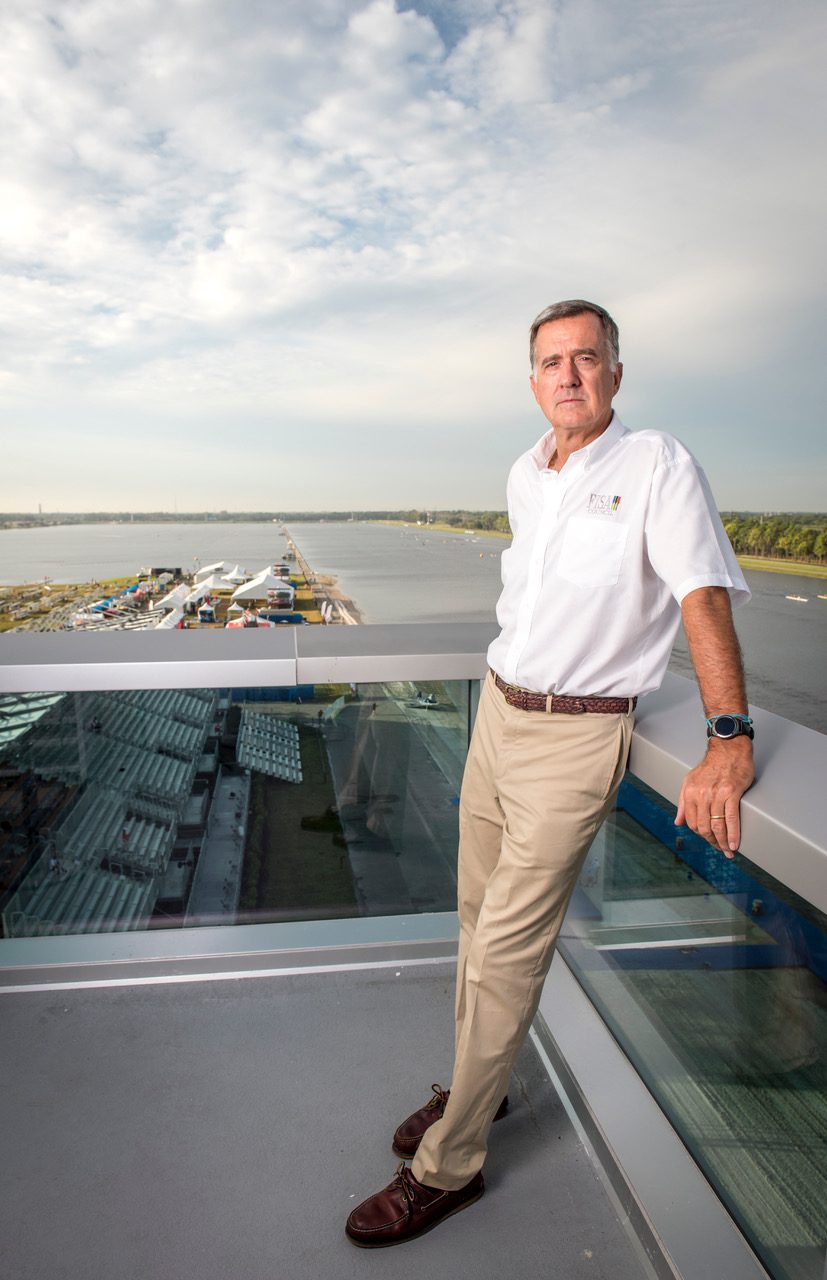
Photo World Rowing Executive Director Matt Smith in Sarasota, Florida, 2017
Credit Benedict Tufnell
FISA Executive Director Matt Smith, masterminding his final Olympics for World Rowing before he retires, explained to Row360 that although flights into Haneda Airport which overfly the course are not being stopped for the rowing, the situation is under control. “The airplane noise issue has been known since we first started working on this venue with Tokyo back in 2007. It is not a big problem for us and only causes a 5-7 second variation of the start sequence as the airplanes can be seen well in advance of the given start time and the starter can adjust.” However, it may be different for the equestrian cross-country competition, which is taking place on the Sunday between rowing and canoeing in the man-made Sea Forest created behind the rowing front. It sounds as if special flight arrangements may have been made for the three hours of the cross-country event, to avoid scaring the horses.
The Lithuanian M4x were out for a paddle along with the rest, having borrowed a boat from a boatbuilder, and looked comfortable doing a burst. It emerges that they were being kept up to date with the Russian anti-doping disqualification through an inside-Russia source, so perhaps weren’t very surprised to be invited to the Olympics last Sunday. Row360 asked Smith if he thought doping issues were rising within the sport, after the two Russians and a clutch of rowers banned by their own federations this year, including Lithuania’s 2018 world champion Ieva Adomaviciute. “I know that the number of tests conducted across sport has increased and, consequently, there is a higher detection percentage”, said Smith. “I am concerned at the high financial rewards being offered across all sports, regardless of sport, by Sports Ministries or NOCs for Olympic medals. For many countries, these financial awards are extreme compared to the cost of living and the quality of life which, of course, could incentivise taking risks to perform.” But he said he thought within rowing doping was under control due to the very low number of positives even though testing had increased.
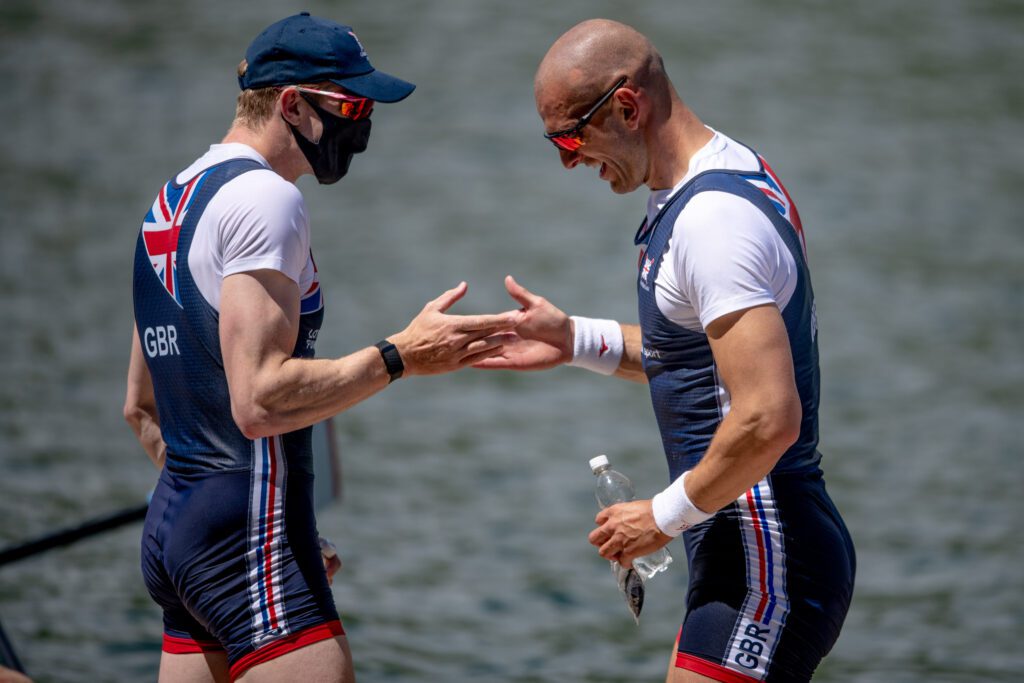
Photo Moe Sbihi (right) with teammate Tom George after beating rivals Germany in the M8+ at 2021 World Rowing Cup II, Lucerne Switzerland
Credit Benedict Tufnell
Thursday also brought news that two more rowers will be bearing flags at the opening ceremony: British M8+ engine room Moe Sbihi (along with sailor Hannah Mills), and the Ivory Coast’s Kouadio Franck N’Dri, their M1x. Normally rowing begins the morning after the opening ceremony, meaning team-members are rarely represented at it. But even though joining a lengthy procession in the time of COVID is not an enticing prospect, the Friday morning racing (and Sbihi’s not in action until Sunday) allows more rowers than normal to take part if they want to. What’s the betting the British men’s eight will slide into the group behind Sbihi?
Back at the venue it’s unclear whether or not those watching the heats on TV will hear anything from the grandstands: cheering is strictly forbidden, even “loud talking” is discouraged and I imagine vuvezelas would be completely out of order, thank goodness. The stands won’t be completely empty, since other rowers — suitably distanced of course — are allowed to stay and watch their team-mates as long as they don’t open their mouths, but no doubt there will be some air horns, football rattles, or thundersticks coming out. (How quickly can you get an Amazon Prime delivery to the Olympic Village?) And the curved roof above the media desks does echo enthusiastic clapping rather nicely, though the incessant background muzak gets completely in the way. There has been talk of the Olympic Broadcasting Service adding crowd noise to its footage, but some rights-holders such as the BBC and NBC will do their own commentary which may erase fake audience sounds.
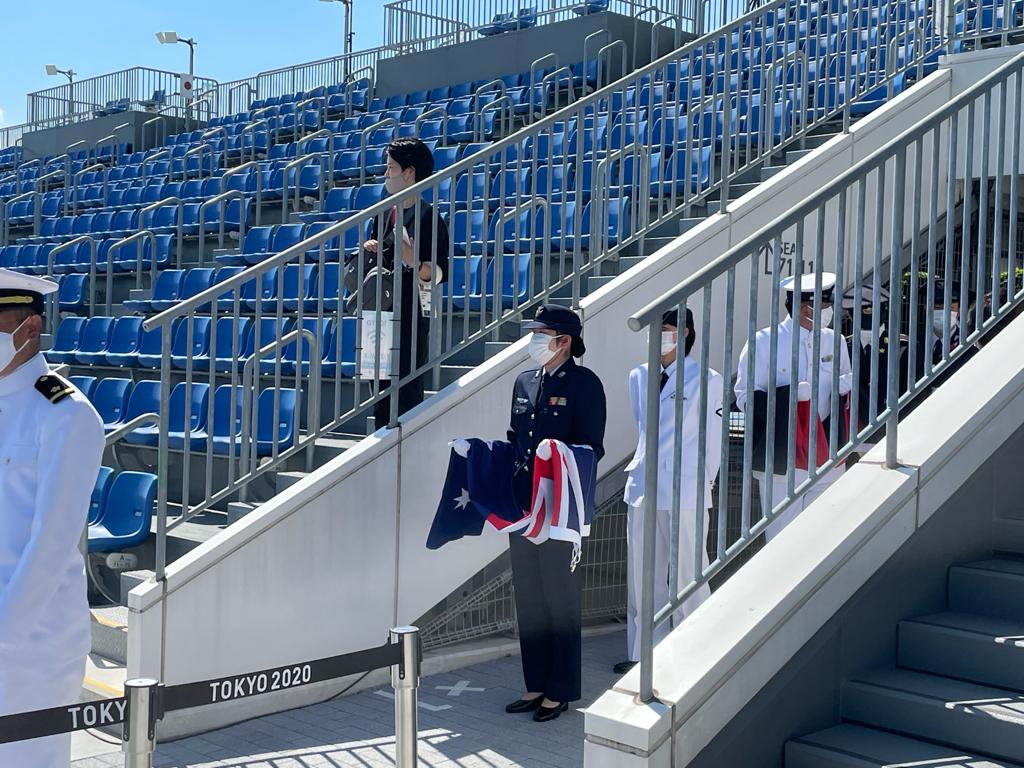
Photo Medal ceremony rehearsals at the Tokyo 2020 rowing venue on thursday
Credit Rachel Quarrell
The word is that in the Olympic Village people are behaving themselves pretty carefully, which may explain why cases don’t seem to be rising, particularly amongst athletes. Yes there are a few new ones each day – particularly in the Czech team, which is now up to five at-Games COVID positives and has pushed the Czech Olympic Committee to launch an investigation. But lately more of the fresh cases have been in athletes still in their home countries, justifying the requirement for competitors not to travel to Tokyo more than five days before their contest. Instead of COVID, the news on Thursday was about the latest scandal to hit the opening ceremony — its director being fired 30 hours before the start after making an unpleasant anti-Semitic joke — and about rowing supremo John Coates, of the Australian Olympic Committee, denigrating a colleague during a live broadcast press conference about their successful 2032 Brisbane Games bid.
There will be more. In an Olympic week, almost everything becomes about the Olympics. Panasonic, Toyota and a Japanese real estate company who all paid millions for Olympic sponsorship rights have come out to confirm that they won’t be running explicitly Olympic-themed adverts during the next fortnight, though bank Nomura is still featuring the Olympic rings by the stadium in its ads. And now there’s been a data breach so that some ticket holders for the Games, many of whom presumably are no longer able to attend, have had their data stolen and leaked online.
If we aren’t careful the sport could come a very distant second to these stories. So here’s to scintillating, absorbing rowing. Good luck everyone.
